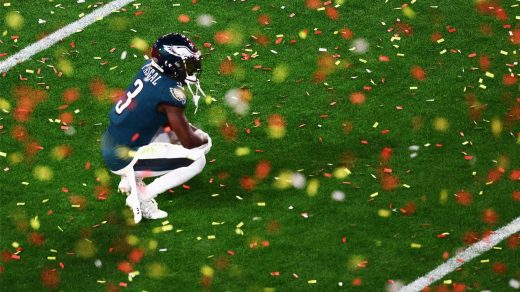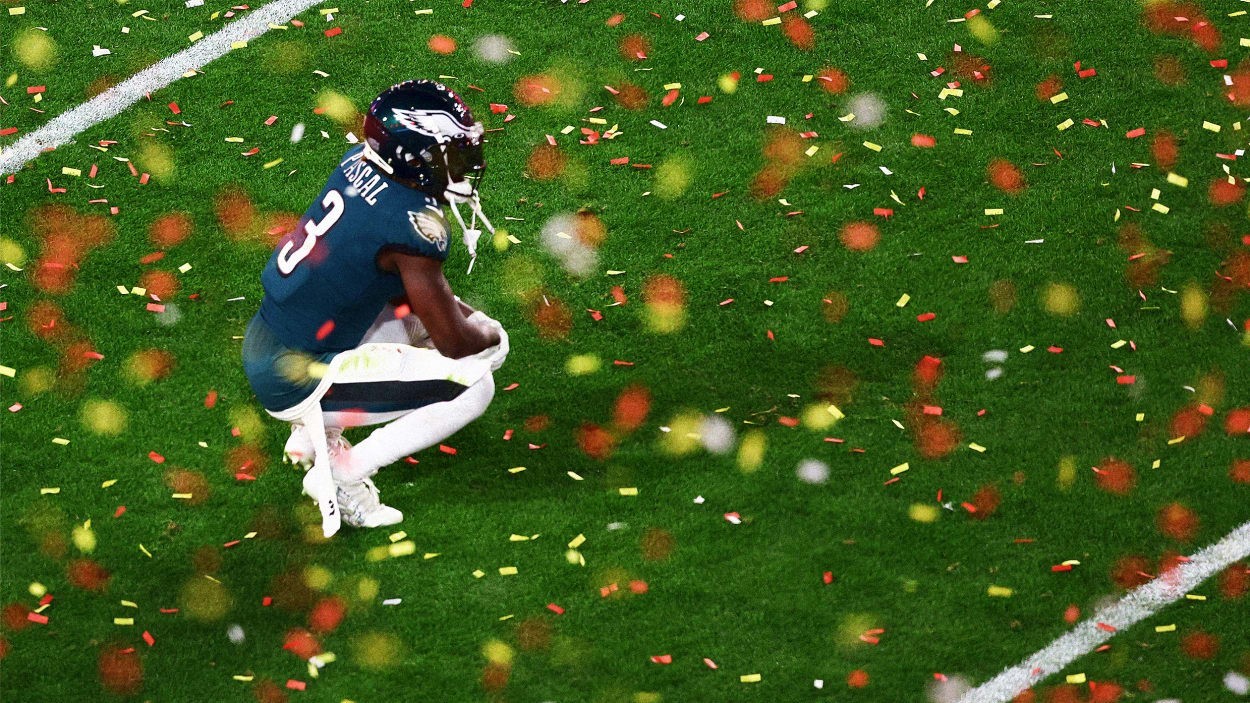The NFL’s secret mission to rid the U.S. of each losing team’s championship swag
The Detroit Lions are NFC champions!
At least that’s what shirts and hats on hand at Levi’s Stadium in Santa Clara on Sunday will say. A separate set will proclaim the 49ers conference champs. At M&T Bank Stadium in Baltimore, one set of merchandise has the Ravens heading to the Super Bowl, the other crowns the Kansas City Chiefs.
For the conference championship games and the Super Bowl, the NFL has to prepare for both the on-field celebration and fans’ immediate punch-drunk rush to buy gear commemorating their team’s big win. Premade hats, T-shirts, hoodies, and more for both teams are on hand at the stadium and shipped ahead to select retailers before each game. When the clock hits zero and a champion is crowned, that team’s merch hits the field and the shelves.
So, what happens to the losing team’s gear?
Well, the NFL can’t sell it. Promoting merch that mocks one of your franchises is bad business. And the NFL has strict protocols to ensure that the products will never reach the general public, so you won’t see fans trolling the runners-up on Instagram, and you won’t find the gear on eBay.
Before 1997, after the final whistle, the bum merch was destroyed. Then, World Vision—an evangelical organization that fights poverty in more than 100 countries—approached the league with a different solution: Rather than sending it to the landfill, they said, why not ship the losing team’s gear to people in countries and communities where the need for clothing is far greater than the need to celebrate?
So that’s what they did. For nearly 20 years, World Vision worked with the NFL to distribute thousands of unused but high-quality shirts, hats, and sweatshirts to communities in need. In 2015, Alexandria, Virginia-based nonprofit Good360 took over.
“Sunday evening when the whistle blows, the NFL wants to make sure whoever wins has at their fingertips a hat or a T-shirt,” Good360 CEO Romaine Seguin said. “So we aggregate the non-winner merchandise and get it into the hands of a child who can use the hat to keep the sun out of their eyes, or a shirt to keep them warm at night.”
The process begins well before we find out who will be playing in the Super Bowl. The NFL and Good360 work together to come up with a list of countries where items could be sent. In past years, it has gone to El Salvador, Haiti, Zambia, Nicaragua, and Romania, among other destinations. This year, according to Seguin, the gear will likely head to the Middle East or somewhere in Africa where the need is great.
Once a championship game ends and a winner emerges, the NFL then gives retailers instructions to send the losing team’s merch to a distribution center on the East Coast, where Good360 then distributes it internationally through various global partners. According to Seguin, it takes roughly seven to 14 days for the product to reach its final destination.
It’s a covert operation. Both the league and Good360 go to great lengths to make sure collectors and domestic fans don’t get their hands on the losing team’s swag, which could end up as either novelty or collector’s items. One T-shirt from 1989 proclaiming the Cincinnati Bengals Super Bowl XXIII champions—labeled as a “misprint”—was listed on eBay in 2022 for $10,000. To avoid this, Good 360 works only with pre-vetted partners that adhere to strict compliance standards.
The NFL partnership is an extension of the work Good360 already does. It partners with donors that have excess goods, typically due to supply chain issues or return issues, repurposing those goods and distributing them to families in need. In the 40 years since its inception, the nonprofit has sourced over $18 billion worth of essential goods like clothing, personal care, housewares, furniture, toys, and more, impacting more than 100 million people in the process. This season marks Good360’s 10th year working with the NFL, and it has a similar partnership with Major League Baseball.
“I think it’s a great commitment on NFL to be sustainable,” Seguin said. “That’s why they continue to work with us. We both have the mission of sustainability and we both have the mission of getting the non-winners’ items into the hands of those with the greatest need.”
So if your team makes it to a championship game and comes up short, you can accept the worthy consolation that while they won’t have a championship to commemorate, somewhere far away, families and children in need will have a reason to celebrate.
(31)



